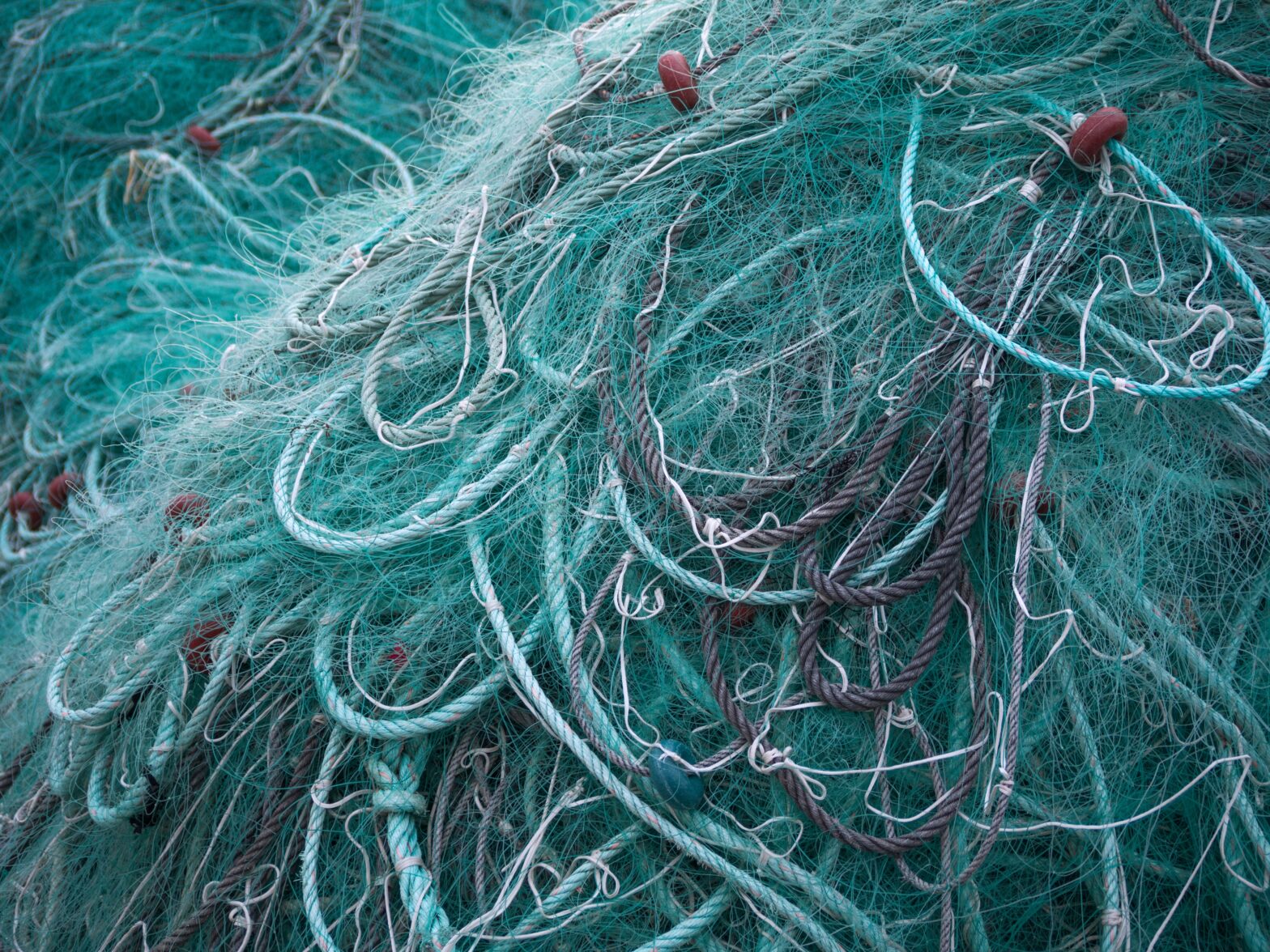OceanCare at Fish Forum 2024 to highlight marine pollution from fishing gear
This week, 19-23 February, OceanCare is attending the Forum on Fisheries Science in the Mediterranean and Black Sea organised by the FAO/GFCM in Antalya, Türkiye. It is the second edition of the largest scientific meeting dedicated specifically to fisheries and related issues in the region.
The Mediterranean is a hotspot in many respects, warming at a rate 20 percent faster than the global average. Most forms of pressure on a fragile ecosystem and marine life can be observed here: chemical, plastic, and underwater noise pollution, ship collisions with large whales, or overfishing. All these challenges require strong, independent, and integrated science to inform environmentally, socially, and economically effective policies and management measures.
The Fish Forum is organised by the General Fisheries Commission for the Mediterranean (GFCM) which is a Regional Fisheries Management Organisation (RFMO) comprised of 22 member countries from the Mediterranean and the Black Sea plus the EU. Its aim is to ensure the conservation of living marine resources as well as the sustainable management of fisheries and aquaculture in the region. This week, it brings together stakeholders from international organisations, public administrations, academic institutions, non-governmental organisations and the private sector at the second “Forum on Fisheries Science” in Türkiye .
The Fish Forum provides a unique platform to discuss emerging challenges related to state-of-the-art fisheries science, as well as related areas such as environmental, oceanographic, and socio-economic research. It has been recognised by the UN General Assembly as an example of an effective interface between science and policy. The Forum enables scientists, industry, researchers, experts, and policy makers to work together to explore ways and tools that can be replicated elsewhere. The results will be presented as regional contributions to global initiatives such as the UN Ocean Conference 2025.
As an official partner of the Fish Forum, OceanCare hosts a side event on Tuesday 20 February to further explore the opportunities and challenges of tackling marine plastic pollution from fishing gear. The aim is to highlight the magnitude of the problem, its impact on marine biodiversity, the existing legal architecture, and the opportunities to initiate a coordinated global and regional strategy covering the entire life cycle of fishing gear. To this end, we invited leading experts and partner organisations to make presentations and participate in an expert panel discussion.
OceanCare has been an official partner organisation of the GFCM since 2016, working together to protect the marine environment. Within this cooperation, we focus on issues such as pollution, in particular underwater noise pollution and plastic pollution, improving fisheries governance and mitigating the negative effects of climate change and the spread of non-native species.
UPDATE: Side event summary
At OceanCare’s side event ‘Untangled: opportunities and challenges in addressing marine plastic pollution from ghost fishing gear’, we were honoured to host a distinguished panel of scientific and policy experts.
- Fabienne McLellan (Managing Director of OceanCare) highlighted the growing threat to marine life and coastal ecosystems from abandoned, lost and derelict fishing gear.
- Bayram Öztürk (Istanbul University) emphasised the importance of regional and international cooperation in addressing marine debris issues in the Mediterranean and Black Sea.
- Katerina Katsaouni (iSea, Greece) shared insights on mussel nets in aquaculture and plastic debris from octopus traps, which are replacing traditional terracotta pots. According to iSea’s analysis, the lack of gear waste management and port facilities are the main concerns.
- Alexander Sánchez (ALNITAK, Spain) explained that Fish Aggregating Devices (FADs), especially those used in illegal fishing activities, pose a significant entanglement risk to a variety of marine animals, especially sea turtles.
- Karen Raubenheimer (ANCORS, Austria) provided an overview of existing global regulation of fishing gear, and stressed the importance of an integrated approach that addresses sustainability criteria in design, strengthening compliance, eliminating dumping and abandonment, improving environmentally sound disposal and recovery, and strengthening reporting and inspection.
- Lobna Ben Nakhla (UNEP/MAP) provided valuable information on efforts such as the Regional Plan for Marine Litter Management in the Mediterranean (RPML), knowledge sharing through the Mediterranean Marine Litter Node and cooperation with the Global Partnership on Marine Litter (GPML).
- Nicola Ferri (FAO) shared some insights on the FAO Voluntary Guidelines on the Marking of Fishing Gear (VGMFG) and the work of the IMO/FAO GloLitter Partnership and emphasised that the GFCM, as one of the Regional Fisheries Management Organisations (RFMOs), is committed to contributing to the development of a global plastics treaty and in particular to addressing the issue of abandoned, lost and discarded fishing gear (ALDFG).
For OceanCare, this very insightful session succeeded in highlighting some crucial aspects of marine plastic pollution:
- Plastic pollution is a complex challenge and requires a globally coordinated set of policies implemented at national, regional and international levels, covering the full life cycle of plastic fishing gear and involving all stakeholders, in particular insights from fishing communities.
- Many existing instruments address marine litter, including the Mediterranean Regional Plan for the Management of Marine Litter and the GFCM Mid-Term Strategy. The Mediterranean is a region with the most advanced policies to address marine litter, including in the fisheries sector.
- The new international legally binding instrument on plastics will be a unique opportunity to address the governance gaps and to put in place a comprehensive strategy that includes action across the entire fishing gear value chain and all relevant sectors. The new instrument should seek to complement and strengthen, rather than duplicate, multi-stakeholder engagement and catalyse better coordination, cooperation, knowledge sharing and capacity building to mitigate one of the most harmful forms of marine plastic pollution.
